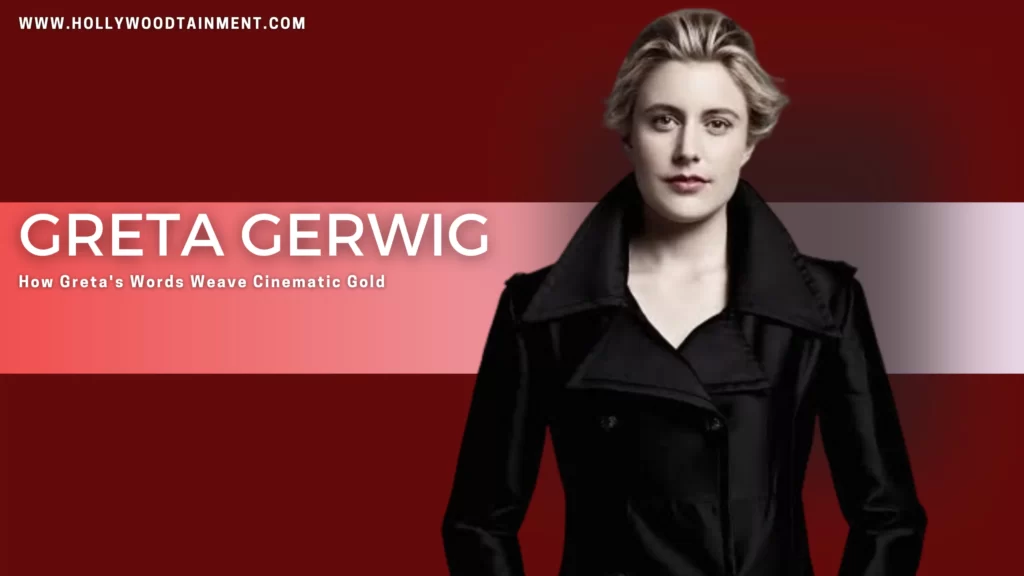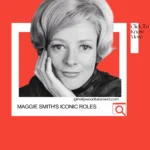Greta Gerwig has quickly earned herself a place among contemporary cinema as one of the premier voices, known for her sharp wit, quirky characters, and dynamic storytelling. Her screenplays often combine humor with heartbreak – earning critical acclaim along the way. From early collaborations with Joe Swanberg to her solo directorial debut with “Lady Bird,” Gerwig has established herself as an influential voice.
Solo Screenplays:
- Lady Bird (2017):
- Release Date: September 14, 2017
- Budget: $10 million
- Box Office: $79 million
- Where to Watch: Netflix, Hulu, Amazon Prime Video
Co-written Screenplays:
- Frances Ha (2012):
- Release Date: May 9, 2012
- Budget: $9 million
- Box Office: $14 million
- Where to Watch: Criterion Channel, Kanopy
- Little Women (2019):
- Release Date: December 25, 2019
- Budget: $40 million
- Box Office: $219 million
- Where to Watch: Netflix, Hulu
Other Writing Credits:
- Hannah Takes the Stairs (2007)
- Nights and Weekends (2008)
- Greenberg (2010)
- Barbie (2023)

Early Beginnings and Collaborative Spirit
Gerwig began her screenwriting career by co-writing and acting in several mumblecore films with Joe Swanberg. These low-budget, improvisatory projects provided her with an opportunity to hone her craft and find her unique voice – with films like “Hannah Takes the Stairs” and “Nights and Weekends” showing how well she captured daily life with an authentic edge.
Gerwig was known for her collaboration with Noah Baumbach. Together, they co-wrote and starred in “Frances Ha,” an amusing coming-of-age tale that earned Gerwig a Golden Globe nomination as Best Actress. Furthermore, their partnership continued on films like “Greenberg” and “While We’re Young,” further cementing their creative synergy.
Solo Flight and Critical Darling
Gerwig made her directorial and writing debut with 2017’s semi-autobiographical film “Lady Bird,” an emotionally engaging tale about a high school senior navigating the complex waters of adolescence. This critically acclaimed work earned five Academy Award nominations – including Best Picture and Director nominations for Gerwig herself – with audiences responding to its relatable characters, sharp dialogue, and emotional depictions of mother-daughter relationships.
Gerwig’s next project, “Little Women,” was an ambitious adaptation of Louisa May Alcott’s classic novel. Her non-linear approach brought together the lives of the March sisters in an approachable yet contemporary manner. Critics lauded its feminist themes, stunning visuals, and Gerwig’s adept handling of an ensemble cast.
Beyond the Screenplay: A Distinct Voice
Gerwig’s screenplays go beyond words on paper; they provide blueprints for cinematic experiences. Her careful consideration of every detail, from dialogue rhythm to the use of music, creates a distinct atmosphere that draws audiences into her world.
Gerwig excels at depicting female characters with depth. Her protagonists may be flawed and unpredictable but are profoundly human and relatable – Gerwig avoids stereotypical and cliched characters and instead crafts characters who feel genuine.
Gerwig’s work stands out for its use of humor, with her sharp and perceptive wit often finding absurdities in everyday situations and lending lightheartedness even when dealing with serious themes. This humor adds another distinct layer to her stories that provides a welcome respite from their darkness.
Looking Ahead: A Bright Future
Greta Gerwig stands to continue her reign as one of the most exciting filmmakers of her generation with her talent for storytelling and unique vision. Her upcoming projects, such as the live-action “Barbie” film adaptation and Carmen Maria Machado’s short story collection “Her Body and Other Parties” adaptation, should meet with great anticipation.
Gerwig is an inspiration beyond her screen work; she serves as an inspirational role model to female filmmakers aspiring to break into male-dominated industries such as film. Her films speak volumes about storytelling’s ability to reach viewers on an emotional level.
In Conclusion
Greta Gerwig’s screenplays are works of art that capture the beauty and complexity of human experience. Her distinct voice, sharp wit, and talent for character development have propelled her into becoming one of today’s most celebrated filmmakers; no doubt her name will always be associated with cinematic magic for years to come.
What are some recurring themes in Gerwig’s screenplays?
Coming-of-age, Female relationships, Identity and belonging, & Humor and heartbreak.
What unique characteristics define Gerwig’s writing style?
Naturalistic dialogue, Focus on emotion over plot, Vivid imagery and detail & Musicality.
What advice has Gerwig shared about writing screenplays?
Write what you know, Focus on emotions, Embrace vulnerability & Revise ruthlessly.







